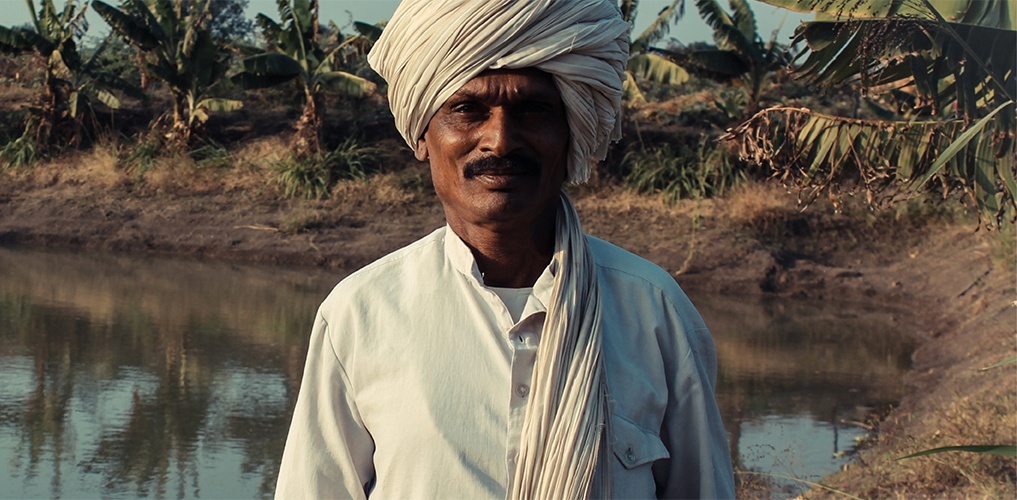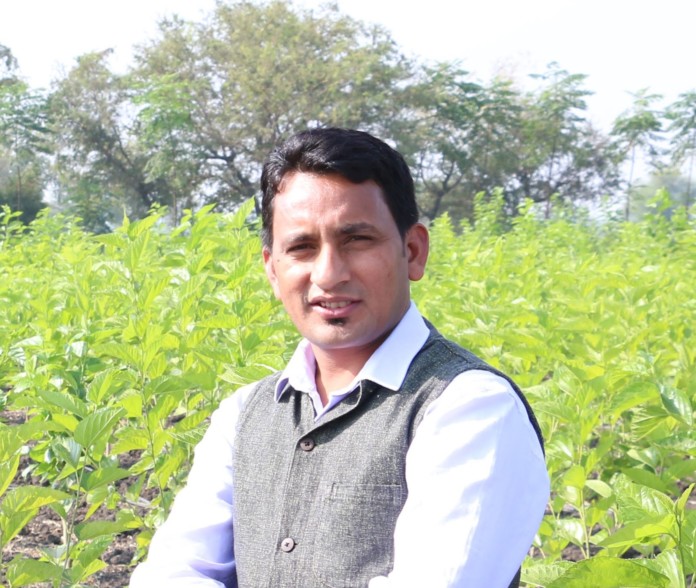Innus Khan, 35, eldest son of an indebted farmer from Mewat, Rajasthan, has been the driving force in constructing 5,000 farm ponds since 2014 and is gearing up to impact lives of 300,000 families by 2020. Clearly, he is on a crusade to transform the lives of desperate farmers in drought-stricken talukas of North Karnataka.
Every time Innus Khan sees a farmer in distress he’s reminded of his mother. With six children and a mountain of family’s debt, his mother died an unhappy lady. Although a graduate of Political Science, Innus Khan used an uncanny break he got at the Indian Centre for Agriculture Research in Jaipur. Here he

A chance encounter with a senior executive from Wipro, who advised him to learn English and computers, brought him to the Deshpande Foundation in Hubli, about 400
The Foundation found a professional who is extremely hard working, open to new ideas and had farmers’ well-being as his primary motivation. Innus is now a key member of the Foundation that has taken on the mission of turning North Karnataka into a prosperous farming region. A tough ask but the successes so far offer a lot of hope.
With Gururaj Deshpande and Jaishree
Social Entrepreneurship Model for Development
The
The Sandbox environment combines the execution excellence of for-profits with the compassion of the non-profits. With deep lessons from a decade of experimentation, the Foundation now wants to enable local problem solvers to embrace
The Foundation has been organizing annual Development Dialogues – a thought leadership platform – for various stakeholders of the development sector in India. Its 12 editions have created a wealth of knowledge and experience that anyone can dip into.
Innus Khan is the ideal product of
For example, under the Neer Sinchana
Under the social entrepreneurship model, the Foundation makes farmers pay a certain portion of the cost of putting up a pond. Farmers’ contribution has been going up and today, they are able to contribute as high as 80% of the cost of Rs. 60,000/- for a 100/100/12 feet point. “The government-run program for building ponds is smaller at 70/70/10 and costs more than ours,” he says. “We now have the capability to build 1,000 ponds a year and can deliver a pond in 36 to 48 hours.”
The Foundation has successfully discredited the NGO model of development. NGOs believe, Innus says, that the poor should not be made to pay for services offered to them. And with their bureaucratic way of doing things has resulted in India’s shameful underperformance in the development sector all these years.
The Deshpande Foundation model ensures an average return of 40% on their crops as against losses in the government-NGO driven development model. Cotton farmers’ returns, for example, is even expected to go up 3x in the near future because of three-pronged factors working in tandem – skin in the game, high efficiency in use of resources and the fair market prices from farmer producer organizations (FPOs).
The Foundation has adopted the franchise model to scale. “Unlike most NGOs who want to hold on to knowledge, we share our secrets openly. We need to empower communities. Social entrepreneurship model can be the most powerful model for creating jobs and improve sustainability. The typical NGO model cannot scale whereas our model is like a business model. They even call me an Intrapreneur,” he says with pride.
Partnership Model
Another open secret of the Foundation is its belief in the partnership model. “The government has the resources and we have the execution skill,” Innus says. He says it was hard to convince the government to work with the Foundation for nearly five years. Looking at our expertise they are now more open to
The Foundation today works in North Karnataka and Telangana for building ponds. In a short time, it has helped construct 830 ponds in Telangana.
Data is the Key for Future Growth
Innus Khan strongly believes lack of focus on data is one of the reasons for low productivity of Indian agriculture. During his visit to Israel he realized how efficient management of data is contributing to the desert nation’s success in agriculture.
The Foundation’s showpiece is Navalgund taluk in Dharwad district of North Karnataka. From a drought-stricken region with pronounced distress, today, farmers grow two crops a year.
The Deshpande Foundation has put in a process of reimagining the development sector in place. “We need to reimagine how we can make
Clearly, the solution for India’s farmer distress has been found and is working well. The key is to scale it rapidly. The Foundation may have to find and train a dozen or more Innus Khans to spread out across the country for this to happen.










